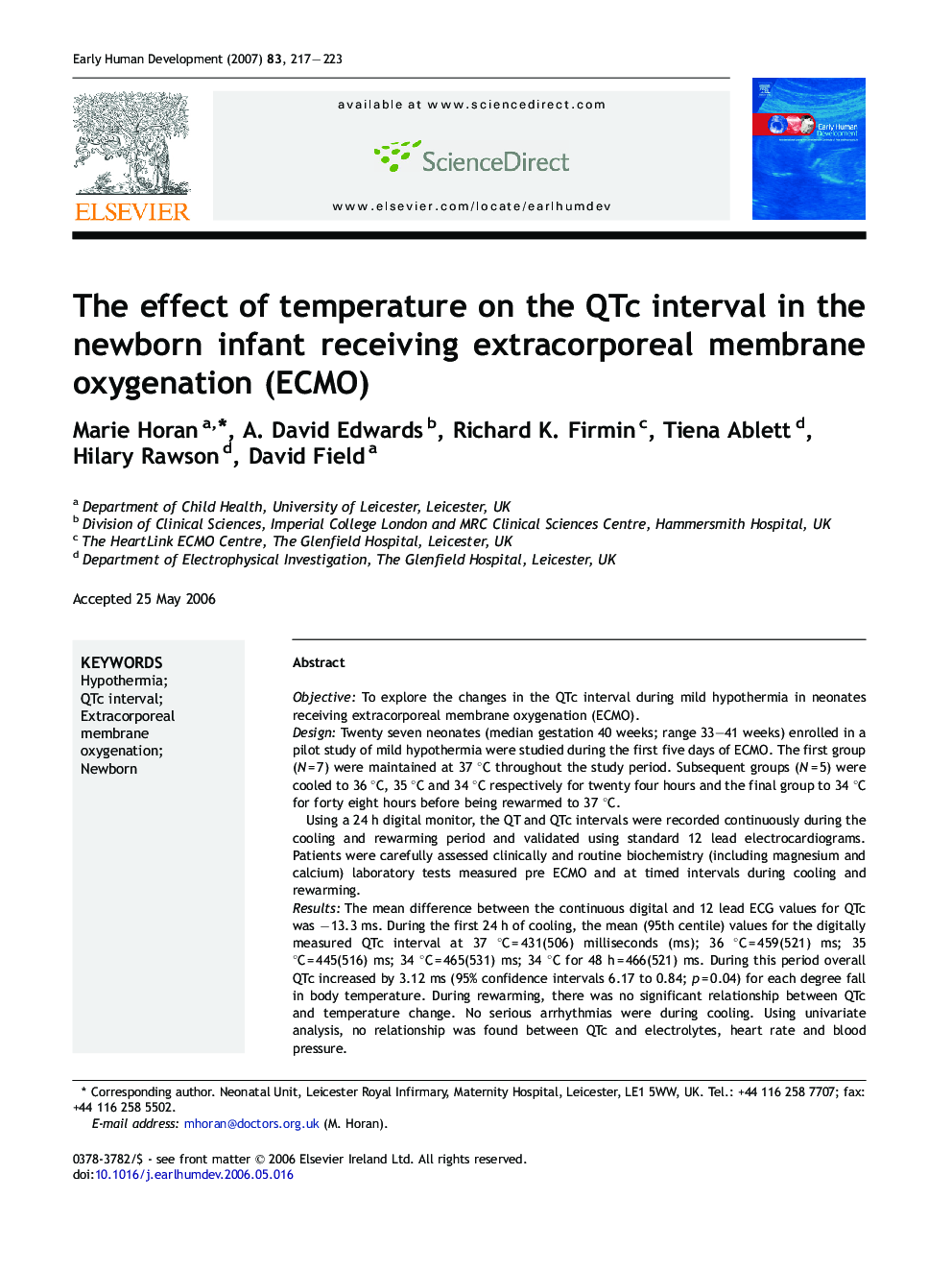| Article ID | Journal | Published Year | Pages | File Type |
|---|---|---|---|---|
| 3917869 | Early Human Development | 2007 | 7 Pages |
ObjectiveTo explore the changes in the QTc interval during mild hypothermia in neonates receiving extracorporeal membrane oxygenation (ECMO).DesignTwenty seven neonates (median gestation 40 weeks; range 33–41 weeks) enrolled in a pilot study of mild hypothermia were studied during the first five days of ECMO. The first group (N = 7) were maintained at 37 °C throughout the study period. Subsequent groups (N = 5) were cooled to 36 °C, 35 °C and 34 °C respectively for twenty four hours and the final group to 34 °C for forty eight hours before being rewarmed to 37 °C.Using a 24 h digital monitor, the QT and QTc intervals were recorded continuously during the cooling and rewarming period and validated using standard 12 lead electrocardiograms. Patients were carefully assessed clinically and routine biochemistry (including magnesium and calcium) laboratory tests measured pre ECMO and at timed intervals during cooling and rewarming.ResultsThe mean difference between the continuous digital and 12 lead ECG values for QTc was − 13.3 ms. During the first 24 h of cooling, the mean (95th centile) values for the digitally measured QTc interval at 37 °C = 431(506) milliseconds (ms); 36 °C = 459(521) ms; 35 °C = 445(516) ms; 34 °C = 465(531) ms; 34 °C for 48 h = 466(521) ms. During this period overall QTc increased by 3.12 ms (95% confidence intervals 6.17 to 0.84; p = 0.04) for each degree fall in body temperature. During rewarming, there was no significant relationship between QTc and temperature change. No serious arrhythmias were during cooling. Using univariate analysis, no relationship was found between QTc and electrolytes, heart rate and blood pressure.ConclusionsQTc shows significant variability in individuals, and only a small proportion of this can be explained by rectal temperature. Mild hypothermia was not associated with serious cardiac arrhythmias.
